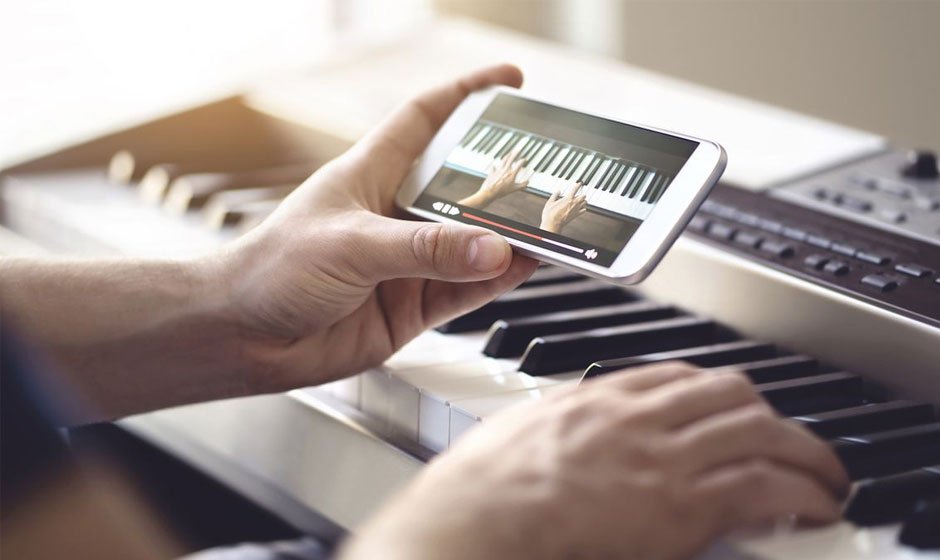The piano, with its black and white keys, is not just an instrument; it’s a gateway to a world of musical exploration. Whether you’re beginning your journey or looking to deepen your mastery, piano lessons and tutorials serve as your personal map through this melodic terrain. They provide structured pathways to learn, interpret, and create the language of music, allowing each individual to express themselves through the timeless art of piano playing. With the right guidance, unlocking the mysteries of music and achieving fluency on the piano becomes an attainable and rewarding adventure.
Lesson Categories
Dive into the symphony of digital piano pedagogy, where each lesson category is a new movement in the grand concerto of your musical journey.
Begin with the foundational allegro of basics, waltzing through notes and chords. Ascend to the adagio of intermediate mastery, weaving through intricate scales and rich theory. And for the virtuosos, the crescendo awaits in advanced studies: a rhapsody of complex techniques and improvisational bravado.
Here, in the orchestra of keys, your progression is harmonized with the precision of technology, creating a seamless, captivating learning experience that sings to the rhythm of your ambition.
Beginner Lessons
A good beginner piano learning app should include:
Basic Notes and Keys: Learning the names and positions of the keys.
Simple Songs: Playing easy melodies to practice these notes.
Basic Rhythms: Understanding and clapping along to simple rhythms.
Finger Exercises: Exercises to make fingers strong and quick.
Reading Music: Learning to read basic sheet music.
Listening Skills: Developing the ear to recognize different notes.
Fun Activities: Games and activities to keep learning enjoyable.
Steady Pace: Going slow to make sure everything is clear.
Motivation: Lots of support and positive feedback from the teacher.
Intermediate Lessons
Effective intermediate piano lessons should build upon the basics learned in beginner classes. A complete piano app should also include:
Scales and Arpeggios: Practice of major and minor scales and arpeggios to improve agility.
Chord Progressions: Understanding common chord progressions used in a variety of songs.
Technique: Development of hand independence and advanced finger techniques.
Sight-Reading: More complex sight-reading exercises to improve the ability to play new music quickly.
Repertoire and Performance: Learning a broader range of music, including classical, jazz, or pop pieces. Opportunities to play both solo and with others to build confidence and experience.
Composition: Sometimes introductions to the basics of creating original music and improvisation can take the learner to another level.
Advanced Lessons
Advanced piano lessons should focus on refining and expanding the musician’s skills with:
Complex Pieces: Tackling challenging compositions that require nuanced technique and expression.
Advanced Techniques: Mastery of ornamentation, advanced pedaling, and dynamic control.
Musical Interpretation: Exploring different styles and historical contexts to inform interpretation.
Performance Skills: Developing stage presence and managing performance anxiety.
Masterclasses: Learning from expert pianists and receiving critical, constructive feedback.
In-depth Theory and Analysis: Understanding the structure and compositional techniques of various music pieces.
Professional Recording: Experience with recording sessions and knowledge of the recording process.
Progress Tracking
Progress tracking in piano teaching apps is not just a feature; it’s a pivotal component that enhances the learning experience. By meticulously mapping a student’s journey, these apps offer personalized dashboards that highlight accomplishments and pinpoint specific sections that may require a bit more focus. This immediate feedback loop encourages consistent practice and keeps motivation high.
Furthermore, these digital progress diaries allow learners to set achievable goals, providing a structured path forward. Whether it’s mastering a tricky sonata or getting a grip on complex jazz improvisations, progress tracking transforms the nebulous process of learning an instrument into a series of quantifiable victories.
This not only aids in maintaining a clear focus on the end goals but also injects a sense of satisfaction and confidence with each step taken. In essence, this feature embodies the convergence of educational foresight and technological innovation, making modern piano learning apps an invaluable ally in the pursuit of musical excellence.
User Feedback and Ratings
User feedback and ratings play a crucial role in the ecosystem of piano learning apps. For developers, they serve as a direct line to the user experience, highlighting what’s working and what’s not. Positive feedback and high ratings can boost the app’s visibility and credibility, attracting new users and retaining current ones. They also guide developers in refining and adding features that meet the users’ needs, ensuring the app evolves in a direction that enhances its educational value.
For potential users, feedback and ratings are invaluable in making informed choices. They provide insights into the effectiveness of the app’s teaching methods, the quality of its content, and the responsiveness of its support team. They act as a trust signal, indicating the app’s reputation among a community of learners. This shared knowledge helps users select an app that aligns with their learning goals, preferences, and expectations, ultimately impacting their satisfaction and success in learning to play the piano.
Final thoughts
In conclusion, piano learning apps are reshaping the way we approach the timeless craft of playing the piano. They amalgamate the richness of traditional piano pedagogy with the innovation of modern technology, offering users an engaging, interactive, and personalized learning experience. User feedback and ratings are the keystones that ensure these apps continually improve and adapt to the needs of learners, creating a community-driven platform for musical growth. As more individuals turn to these apps to learn and refine their piano skills, we can expect to see a harmonious blend of classical techniques and digital advancements guiding the future of piano education.

